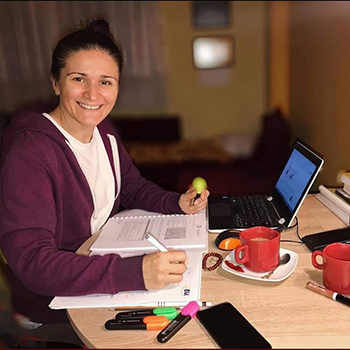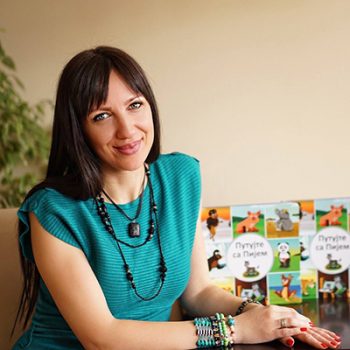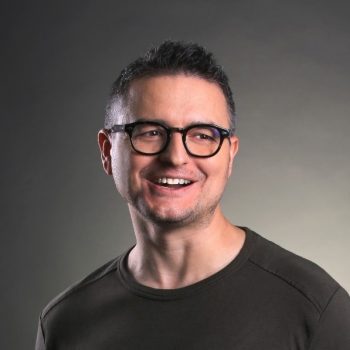The ongoing pandemic has created both public health as well as an economic crisis. Millions of people worldwide are left without a job and an opportunity to provide a minimum income for themselves and their families. However, for those who still have jobs, it’s changing not only how they work but technology-wise as well. Every job will increasingly require digital skills. In the next five years, nearly 149 million new tech jobs will be created in fields like software development, cybersecurity, and machine learning, says Satya Nadella, Microsoft CEO.
That’s why Microsoft, LinkedIn, and GitHub have decided to launch a global initiative and bring digital skills to 25 million people worldwide. From June to December 2020, in Serbia only, more than 17,000 people opted for this free online education in order to change professions and or upgrade the existing ones.
Darija Šajin, Dragana Vukajlović Krstović, and Nenad Simić used online education to improve their skills, and they believe that their experience will be useful for all interested parties in keeping pace with the ever-changing world.
When did you decide to educate yourselves additionally?

Darija: In mid-2018, I took on a six-month online course in digital marketing, aiming to explore potentials and opportunities in that area. I completed it with success because it was available online. I didn’t have to go at a specific time on specific days to a venue to study. Instead, I just put on my earphones when it suited me, when I was focused, and listened to or repeated lessons. Communication with lecturers was smooth and efficient, which was very important for me. After a basic course, I also finished an advanced one. I didn’t have a completely clear picture of the functioning of Google, Facebook, Instagram, LinkedIn function, content marketing, copywriting, paid advertising, WordPress, e-commerce. In contrast, today, I can say I have a solid knowledge of all that.
I’m currently improving my skills for free, using the LinkedIn Learning and Microsoft Learn platforms. Microsoft grants overall online education. It is highly valuable and available 24/7. I’ve decided to listen to the modules about project management and digital marketing for now, but I’m also interested in other modules as well. Lessons are clear, creative, and innovative. The methodology of communication, knowledge transfer is highly motivating, keeps my attention, and there is even an option of checking what you’ve learned on a test and obtaining a recognized certificate.
I aim to get the necessary work equipment and one day create a web page on my own, design, promote my business idea, project, or solution to an issue in the community.
Dragana: After moving to Berlin and realizing that the Serbian online market is entirely different from the German one, I decided to improve my skills in online marketing, business English and learn German additionally.
Nenad: The first 20 years of my career in architecture were marked by assignments and projects across the globe – Belgrade, Barcelona, Hamburg, Dubai, Mexico. Meeting different people and cultures, methods of work, and life in general, resulted in my open approach to everything, including the notion that every day in life is a new lesson – additional education.
Did you already know that you wanted to change jobs or acquire additional skills in a selected area?
Darija: I needed additional skills. As digitalization is happening worldwide, telling us that we need to keep
pace with trends, I realized that it was essential to learn about digital marketing. There is the ongoing 4th intelligent industrial revolution in the world. Our weakness is a lack of knowledge, slow reforms, especially in education, shortage of a new IT educated new generation, who will join the creative economy. My job requires engaged participation in the digitalization process, educated and responsible public administration. That is why people in Serbia should use available free programs for online education. If you’re unemployed, don’t just sit around and do nothing. Learn English, improve yourself, it’s free, it’s a way to change profession and become an employable category.
Dragana: I wanted to go back to the area where I was active until a few years ago when I made a break to spend more time with children and focused on publishing children’s books. However, although I’ve been an entrepreneur for the last ten years, I like the idea of getting back ‘to work’ to learn about the German market and method of work more quickly. It is easy to work from here for Serbia, but a much more significant challenge is to find a niche here. And it made sense to me to start from what I was best in and where I was most experienced. Therefore, the courses helping me refresh and improve my knowledge have been the right choice for me.
Nenad: Friedrich Nietzsche said that the snake which cannot cast its skin has to die. That applies to a mind that doesn’t change as well. So, I didn’t have to find out or realize that I wanted to change. It is a constant. It goes without saying. Since I was 10, I have been engaged in architecture in different ways. However, Nenad Simić, an architect, imagined and drew villas on the hills around Los Angeles at the age of 10, learned about and planned sustainable development of cities at the age of 20, designed houses, buildings, and interiors, servicing private clients, at the age of 30. In contrast, today, I am focused on a single element- building facade. Imagine what a product looks like when you direct so many years of accumulated experience like a laser to learning and developing one field only. In that sense, the need for additional knowledge in a specific area is a consequence of making things simpler.
How did you obtain information about the type of education you wanted?
Darija: I learned about LinkedIn Learning, and Microsoft Learn via Facebook and by reading an interview. At the time of the coronavirus pandemic, I get informed via social media, collect and sort information in line with my needs. I think that people in Serbia are not informed enough, do not use social media much for that purpose, because the Internet infrastructure is not equally accessible for everyone. There is a huge difference in Internet access between rural and urban areas in Serbia. Surveys I conducted this November among female entrepreneurs and farmers show that women in rural areas are not informed about financial instruments assisting them with business ideas in practice, for instance, and have no adequate online learning conditions. That’s the problem.

Dragana: I use platforms for courses such as Coursera, LinkedIn Learning, Udemy. Because I generally like to learn about everything that seems interesting and potentially useful. I monitor what they offer and thus learn about novelties.
Nenad: We live at the time when your phone knows before you that you want to learn something, for instance. We do not have to look for information anymore. It comes to us, and thanks to artificial intelligence and machine learning, it is increasingly tailored to our needs, whether we like it or not.
Was the online education program demanding for you?
Darija: No, on the contrary, education is creative, full of useful information that helped me see things from a different perspective. It is all a matter of making a decision and will. You need to invest efforts, attention, time, but it’s worth it. I graduated in law, but I had no IT and marketing classes at the university, so I had to learn about algorithms, pixels, definitions of marketing terms. People are surprised when I tell them that I am getting additional education in digital, with a comment like ‘Well, you’re a lawyer, and you have a job, you don’t need that?’’, but I don’t mind because I know that my learning is heading in the right direction. You need to overcome prejudice. When my mother, who is 76, can learn with huge interest what icons on a computer are, watch tutorials on YouTube, use them, so can I, I have to.
Dragana: Not so far, because I started from the beginner’s level to check if I had any knowledge gaps. A more serious part of the education is coming, but I’ve followed the classes more than successfully so far. My impression is that courses are tailored for people with less experience and a schedule. And that is an advantage for everyone who wants to advance because they can keep a faster tempo.
Nenad: You start going to a gym or decide to quit smoking, eat more healthy food, and after a month, everyone is asking you if it is difficult for you. You go on, and after a while, you don’t know how you could live without it. That applies to all simple things and online education as well. Various specialized programs and platforms such as LinkedIn Learning enable you to learn precisely what you want, with dynamics adjusted to your lifestyle.
Did you get information about where you could apply the knowledge you gained during education, namely how you could look for a job?
Darija: Internet users are well-informed people. Usually, every online learning platform contains information about job opportunities. Eventually, you realize where you could find a job, how to use what you learned. LinkedIn is a business social media for connecting employers and job-seekers.
Dragana: Yes, and after the completed education, there is an offer for establishing contact with potential firms. This applies to all those who complete certification s well, namely pay for that part.

Nenad: I think that it is a simplified and opportunist view of the role of education. We do not learn to get a job. We do not learn for a commendation, certificate, or diploma that will distinguish us from many other candidates. At least I don’t. And then, if you really learn a lot and advance, you get into a paradox situation that you are not looking for a job, but jobs from all over are looking for you.
Did you manage to find a new job?
Darija: A huge benefit of online education in marketing is new people, new contacts, new friendships. I occasionally get invited by colleagues in marketing to support specific projects. After 20 years of work in the administration, it takes some time to gain confidence, support, and audience for work in some other area. Through short campaigns on my profiles, I strive to present and communicate what I also know.
Dragana: I still don’t look for it actively; so far, I have been preparing to be able to respond to the demands of the German or global market adequately. In other words, I combine the existing experience with new findings.
Nenad: I have found much more. I redefined my role, found an empty niche in the construction sector – facade engineering, specialized and restructured my business, attracted new associates, recruited new people. When you find your new self, everything else you find is new. A new job or new clients are only a consequence of more significant changes.
Your opinion about online education
Darija: One thing is certain about online education: you gain and don’t lose anything. The invested efforts, time, will, patients, and money generate multiple returns. Online education represents an opportunity for accelerated learning, a new profession, a recognized certificate, more job opportunities. Our survival is related to our willingness to learn.
Dragana: It’s perfect! The main advantage is that you choose what you want to learn, when and up to what level. You can switch topics, access everything you are interested in, although it may not be closely related or even in the same industry. Unlike schools and universities with their curricula they follow at an individual pace and schedule, all courses mainly offer the opportunity to learn and work at their own pace so that most participants can tailor classes to their free time. If you have children as I do, you will learn and work when they are at school or kindergarten or when they sleep; if you work full time, you can set aside a day for learning when you are not occupied with your job. Plus, there are always weekends.
Nenad: The only form of education that will survive.
Free online learning courses are available on opportunity.linkedin.com, with updated and revised content added regularly, in English, French, German, Spanish, and soon in Japanese
Source: BIZLife





